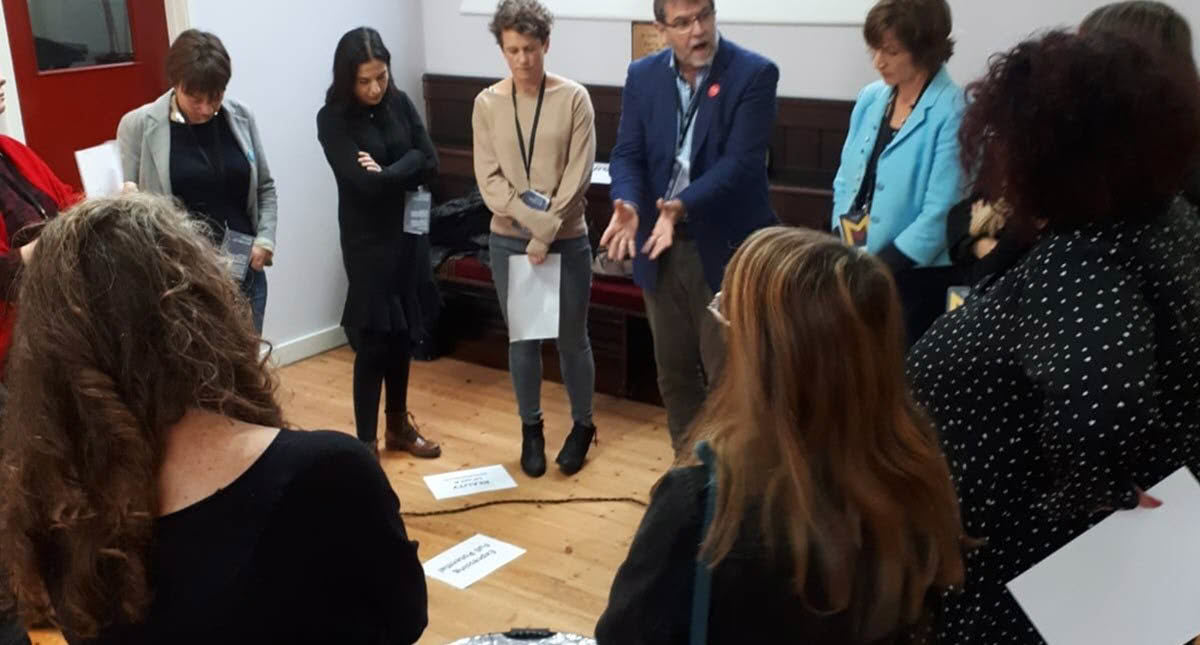

Research by Grace Park, MSc student, Psychology Department, University of Canterbury, New Zealand. Supervised by Professor Joana Kuntz and Assoc. Professor Sarah Wright
The COVID-19 pandemic saw a significant rise in remote work, with workers physically dispersing to
their homes or other ‘third spaces’ to carry out their duties. Some challenges that remote workers
face, that were highlighted during the pandemic, are feeling less socially connected, disrupted
communication, perceived lack of support, perceived lack of career progression, and reduced overall
wellbeing. Acknowledging the prevalence of remote work to organisations, it is important to look into
this population of workers and understand how remote workers experience meaning in work.
Our Research
The Map of Meaning
The Map of Meaning (MoM) was used as a framework for this study to assess remote worker
experiences. The MoM comprises four main pathways to meaningful work:
1. Unity with others
2. Service to others
3. Expressing full potential
4. Integrity with self
It is also supported by 3 dimensions:
• Balancing tensions
• Inspiration
• Reality of self and circumstances
The Comprehensive Meaningful Work Scale (CMWS), developed from the Map of Meaningful work
dimensions, was used as a reference for this study. The CMWS is a validated tool for capturing the
experience and sources of meaningful work but has previously focused on workers who are co-located
in the same physical space. Remote workers had not specifically been considered when developing
the CMWS.
Methodology
Eleven (11) fully remote workers who were physically separated from their office and colleagues were
interviewed about their experiences of remote work and how they find meaning when working
remotely. Interview questions were based on the CMWS to explore if, and how, the Map of Meaning
dimensions captured the experiences of this subset of workers.
The Findings
The findings from this research indicated that the four main pathways of meaningful work, were also
sources of meaning for remote workers, though operationalised in somewhat distinct ways.
Unity with Others
The dimension of ‘unity with others,’ which encompasses a sense of belonging, sharing values, and
working together was one of the pathways that overlapped with remote workers’ experience of meaningful work.
Participants experienced meaning at work through unity, but this pathway was
eroded via the mode of work. The moments of unity such as meetings, spontaneous connecting, and
collaborating that may come naturally in a physically shared workspace were mostly scarce among
fully remote workers. The known barriers of remote work, such as the technological limitations and
reduced opportunities to meet and connect with others, were prevalent through this dimension.
Participants had to be more effortful and intentional to experience meaning at work through unity
with others.
Service to Others
The ‘service to others’ dimension was found to be a strong source of meaning for many of the
participants through making a difference to others and seeing the impact of their work. Participants
greatly appreciated helping others and seeing their contributions come into fruition. The remote
working barrier was found to be another challenge for this pathway as participants found it more
difficult to see the impact of their job tasks and how they contributed to organisational or community
outcomes. One participant described experiencing less meaning through service to others while
working remotely as tasks became “transactional” due to the lack of connections with colleagues. To
experience meaningful work through this dimension, participants had to exert more effort to
overcome the barriers to seeing the results of their outputs.
Expressing Full Potential
Experiencing meaning through the pathway of ‘expressing full potential’ for participants was similar to
co-located workers, through achieving, expressing creativity, and influencing others. The findings
indicated that this pathway was also undercut by remote work as participants had to be more effortful
in order to be recognised, overcome barriers to be creative, and influence others. Participants
described the lack of opportunities to be creative, achieve goals, and more effort exerted to keep
projects moving as challenges in remote work compared to being co-located together in an office.
Integrity with Self
Experiencing meaning through the pathway of ‘expressing full potential’ for participants was similar to
co-located workers, through achieving, expressing creativity, and influencing others. The findings
indicated that this pathway was also undercut by remote work as participants had to be more effortful
in order to be recognised, overcome barriers to be creative, and influence others. Participants
described the lack of opportunities to be creative, achieve goals, and more effort exerted to keep
projects moving as challenges in remote work compared to being co-located together in an office.
Contextual dimensions
The overarching contextual dimensions of ‘inspiration,’ ‘reality,’ and ‘balancing tensions’ were found to
apply differently to remote workers and suggestions were made to adapt the wording of CMWS to “I”
statements rather than “we” statements when surveying remote workers. There lacked a direct
mapping between the CMWS and participants’ descriptions of what inspired them at work and their
acknowledgements about the reality of remote work. Despite the lack of direct overlap, participants
still experienced meaning through inspiration citing personal goals and people around them as
sources of inspiration.
‘Balancing tensions’ between ‘self’ and ‘others’, and ‘doing’ and ‘being’ was apparent in the
experiences of participants working remotely. Participants derived meaning from the work-life balance
that remote work granted, which allowed them to balance work tensions. When working from home,
participants were able to demarcate uninterrupted time and space to focus, which helped to balance
‘being’ and ‘doing’. Participants also found that remote work helped to balance the needs of the self
and others at times when they could be flexible to take some time for themselves or family while also
having the capacity to focus on work.
New finding: Visibility
A theme of ‘visibility’ was a new finding in this study where a recurring tension between being ‘seen’
and ‘unseen’ was described. Participants made statements about not being able to see others, being
forgotten about by colleagues and/or their organisation, not knowing the availability of their
colleagues, lack of feedback and recognition, and making more intentional atempts to be visible to
everyone else. The new theme ‘visibility’ was found to be more appropriate as an addition to
‘balancing tensions’ as opposed to another dimension of meaningful work. Too much or too litle
visibility permeate the four main pathways in remote work, and therefore is a tension to grapple with.
With reduced visibility, participants put in more effort to be seen so that they could connect with
others through ‘unity with others’ or be recognised for a project they contributed to through
‘expressing full potential’ and ‘service to others’. However, putting in too much effort to be visible
could be experienced as disingenuous or lead to exhaustion. With increased visibility, participants
spoke about not being able to be their true selves and feeling pressured to work more, impacting their
experiences through the dimensions of ‘expressing full potential’ and ‘integrity with self’. This new
theme may indicate a changing context in how people experience meaningful work and future
research may consider modifying the CMWS to include this.
Implication for Organizations
From the findings of this study, organisations are encouraged to engage their remote workers more so
the burden of effort does not solely lie on the remote worker. The challenges of remote work,
particularly the lack of social aspects, were found to hinder or change individuals’ experiences of
meaning found in their work. It is important for the experiences of remote workers to be considered, particularly during this time where remote work is here to stay and the yearning for meaningful work is strong.